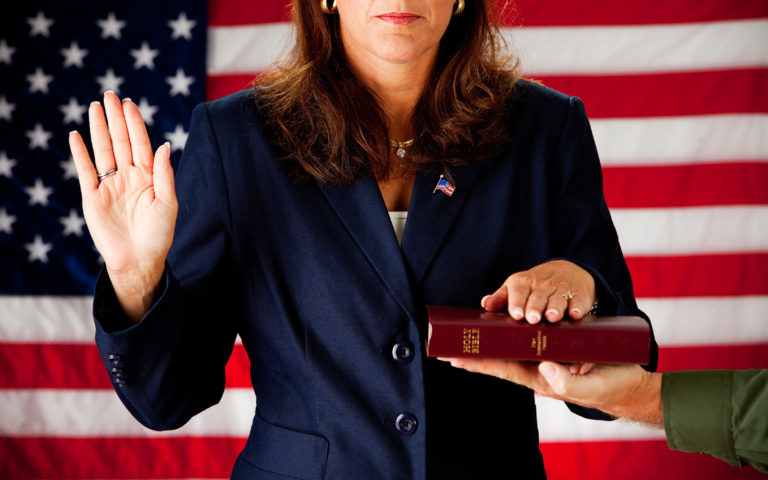When Governor Cuomo steps down from his role as governor, Lt. Governor Kathy Hochul…
State Legislatures: The Epicenter of Women’s Rights

While we are still over eight months away from Election Day 2024, our newsfeeds, group texts, and dinner tables are already dominated by conversations about who the President will be, or which candidate might win the open California Senate seat.
But what about your state representative? They receive little to no attention during presidential election years. Down-ballot candidates are forced to battle for limited airtime and recognition from national interest groups who are more preoccupied with the “more important” races. State legislature elections are left in the shadows.
At The First Ask, an organization dedicated to electing progressive and pro-choice women to state chambers, we receive one question more than any other: why focus on state legislature elections–especially during a presidential election year?
Legislators at the state level routinely make decisions that affect women’s daily lives. While federal legislators may make decisions regarding massive budgets and foreign affairs, state legislators make daily decisions about childcare, local education, and more.
One key area where state legislatures directly impact women is paid family leave policies. While there have been talks of federal legislation regarding paid family leave for years, each attempt has stalled in Congress. Instead, the right to paid family leave has been a state-by-state process. Currently, only thirteen states and the District of Columbia have mandatory paid family leave systems. State legislatures also have the power to further expand paid family leave. State level paid family leave programs significantly boost the number of mothers in the labor market and keep career opportunities open to women who chose to have children.
In addition to paid family leave, state legislatures have increasingly made policies related to sexual harassment and provided additional protections for survivors of sexual harassment. However, not all state legislatures have passed such laws. For instance, Mississippi lacks any state laws preventing workplace sexual harassment. Within the Mississippi state legislature, only 15.5% of elected officials are women. Perhaps, if the Mississippi Legislature mirrored U.S. demographics, it might foster the implementation of policies safeguarding women.. This underscores the critical importance of electing politicians who are representative of the communities they serve.
Beyond the impact that state legislatures have on women, women also have a profound impact on the governing of state legislatures. Studies have shown that not only are female legislators more likely to introduce and support bills that benefit women–including paid family leave and sexual harassment legislation–but women are more effective at legislating. When compared to their male counterparts, both Democratic and Republican women routinely see greater success in pushing their bills through to become law.
Within a political landscape where the Presidential Election is shaping up to be a showstopper, it is important not to forget down-ballot races. You can get involved not only by casting a vote in the general election, but also by staying informed about candidates’ prioritized policies and actively participating in primaries. As we continue to push for progress in this country, women are at the forefront.






